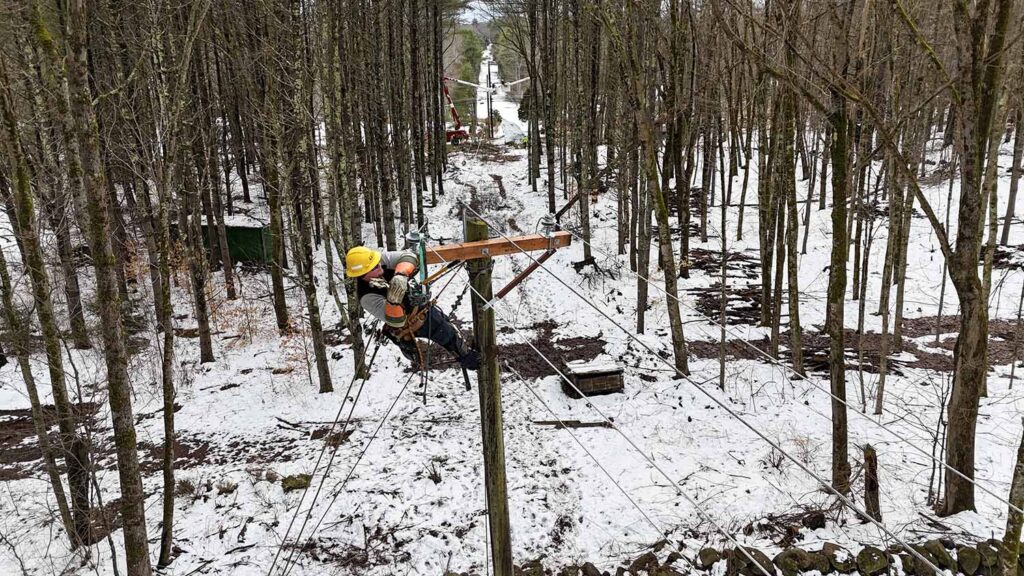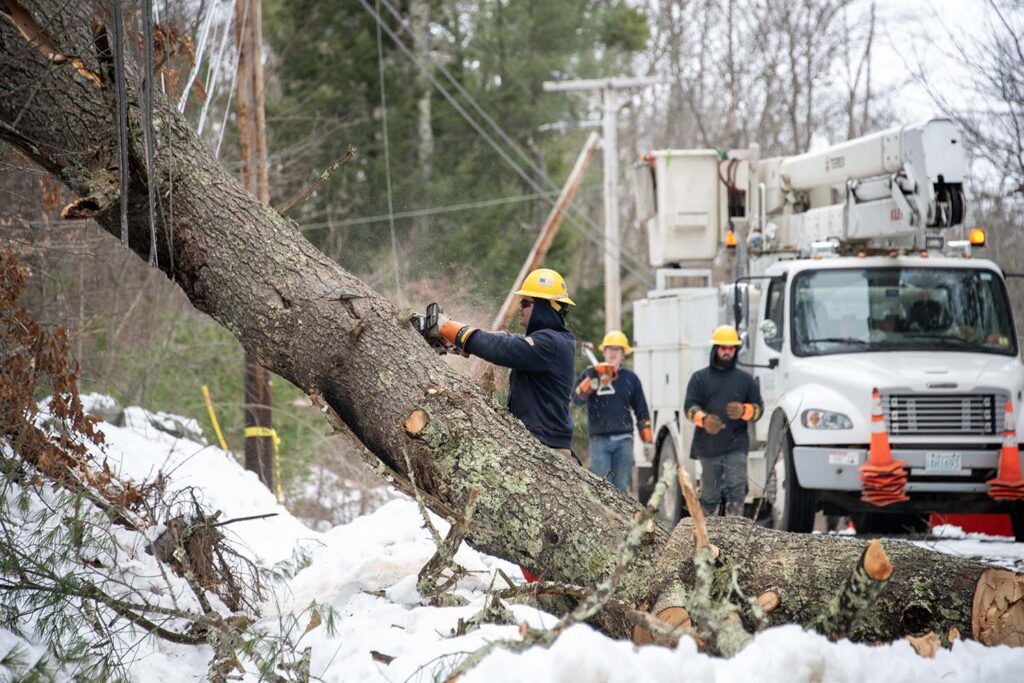
Line crews from as far away as Virginia converged on rural New Hampshire to help restore power after a major post-Easter storm left tens of thousands of electric cooperative members in the dark for several days.
The storm dumped some 20 inches of dense snow on parts of New England, with heavy damage in the territory of New Hampshire Electric Cooperative. The co-op lost 158 poles and counting and had approximately 50,000 meters out at peak, said Seth Wheeler, senior communications specialist at Plymouth-based NHEC.
“It was the wet, heavy snow you see in a late winter or early spring storm,” Wheeler said. “It was like stucco. It looked like something that came out of a spray can. It stuck to everything.”
Lineworkers laboriously cleared blocked roads, cut through downed trees and battled high winds of more than 60 mph in some places in the aftermath of the April 4 nor’easter. They worked 16-hour days in trying circumstances, including on soft, muddy ground worsened by the storm.
“It was a very long-duration storm, so it was treacherous for nearly 36 hours before it was safe to go out and do a full assessment. We sent out crews when we could do so safely, but the conditions were very difficult,” Wheeler said.

More than 70 lineworkers from Choptank Electric Cooperative, Denton, Maryland, and Virginia co-ops Rappahannock Electric Cooperative, Fredericksburg; Central Virginia Electric Cooperative, Arrington; Northern Neck Electric Cooperative, Warsaw; Shenandoah Valley Electric Cooperative, Rockingham; and Southside Electric Cooperative, Crewe, made the 650-mile trip to help with mutual aid.
In all, about 170 external crews were in the field as of April 8, when NHEC expected to have “substantially” all of its members back online. However, Wheeler said it would take a while to respond to scattered accounts unprepared to receive power or with extenuating circumstances.
“We serve a lot of places that are only used in the summer and reachable only by small access camp roads that are full of fallen trees. In many cases, people are not living there during the winter. But we are getting to those as quickly as we can.”
Wheeler added that all hands were on deck in the co-op and the community to accommodate the influx of lineworkers. Tourism is popular in NHEC’s territory, so hotels and inns had sufficient space for the crews. The co-op has served more than 7,000 meals to the visiting crews.
“It is quite a logistical feat to house and feed that many line crews, so we appreciate the support of our community and our internal staff. They really rose to the occasion,” he said.
Steven Johnson is a contributing writer for NRECA.